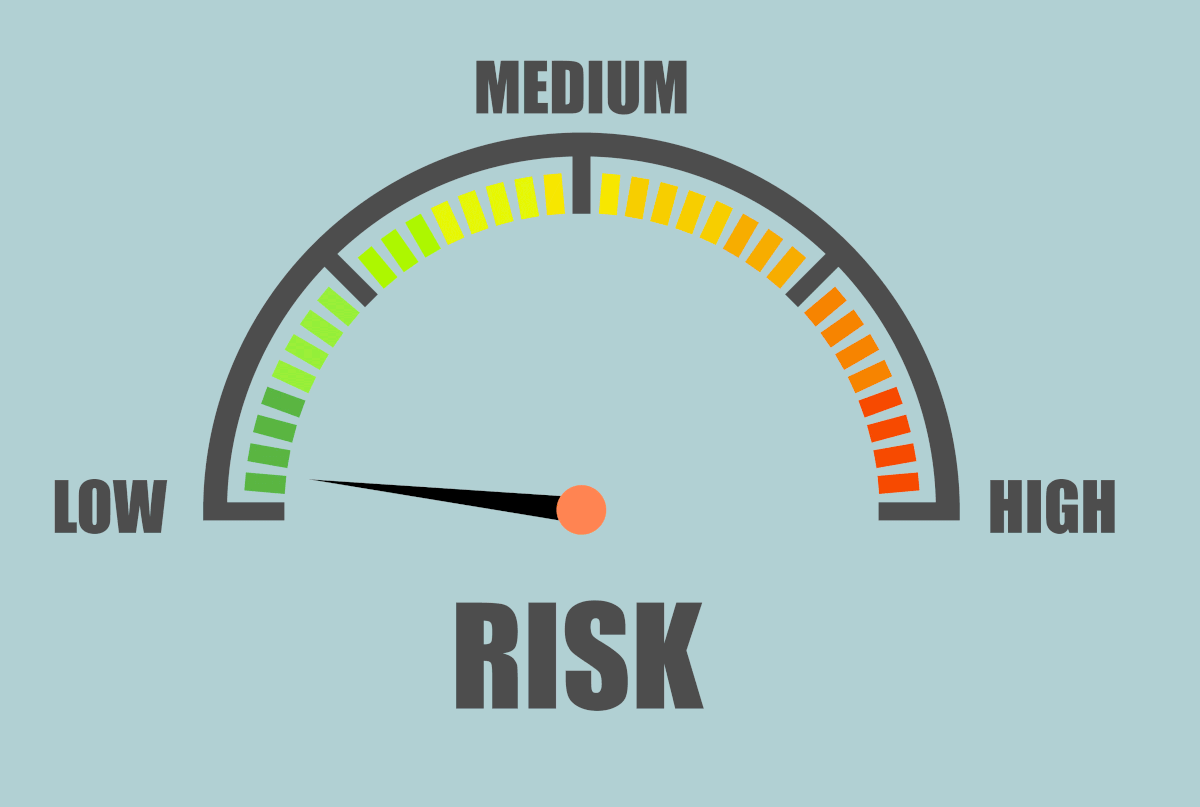The Psychology of Investing and Why It Matters for Your Retirement

There are many types of risks that investors might take in order to achieve their financial goals. They can insure themselves against market risk by having money in safe vehicles such as fixed annuities, Treasury securities, and CDs.
However, at times inflation can be higher than how much money might grow in these lower-risk vehicles, so that must be taken into consideration as well. Some types of financial risk can be reduced or eliminated by diversifying your portfolio while other types of risk are immune to this strategy.
But the most important issue is this: How do you see and perceive risk and then react to it? This is where the psychology of investing comes into play. Here’s a look at how it can affect your money and retirement in different ways.
The Risk-Averse
Some investors simply can’t bring themselves to risk their principal, much less even a penny of it, in any type of investment.
Those who are this cautious will inevitably miss out on the higher growth potential of more aggressive investment options such as stocks and mutual funds. However, they will also be immune from the periodic major losses that the markets hand out, such as in 2000, 2008, and 2020.
Many people become increasingly concerned about preserving their wealth as they approach retirement. This is both normal and understandable. Most financial professionals generally encourage their clients to take this approach.
That being said, preservation of wealth should also have balance. A portfolio with no market risk most likely won’t be able to keep up with inflation over time. In turn, that can affect just how much purchasing power that people have with their money.
With a little bit of planning, you can make sure that you are taking the right types – and amounts – of risks with your money in order to help you reach your financial goals.
If anything on this front is unclear, don’t hesitate to enlist the services of a qualified financial professional. They can help you frame your questions, what-ifs, and concerns in context.
With their guidance, you can determine your risk tolerance, financial objectives, and financial timeline, and then build a plan that fits your situation.
The Follower
Another type of investor is to be a follower. This is someone who doesn’t take a proactive approach to investing but just does whatever is easiest or the most comfortable. While a follower mindset might be helpful for going down financial paths that have proven historically to be successful, it may be self-defeating in other ways.
An approach of blindly following the herd, such as buying into market mayhem when everyone else is without a clear plan, could make your financial well-being go awry if things go badly.
Investors of the follower mindset would do well to work with an experienced financial professional. They do often follow the suggestions of their financial advisors (if they have one). Followers tend to have biases according to what they think rather than what they feel.
The Independent Contrarian
A third kind of investor takes a much more independent and proactive approach to investing. People of this sort often have their own ideas about which financial vehicles to buy and what things will look like in the markets and economy going forward.
Many of them have consequently developed a contrarian approach to finance that may ignore traditional, long-term principles.
Independent investors tend to be analytical and critical thinkers who base their decisions on logic and their own gut feelings. They are also more willing to take decisive action and take risks when they feel that they need to.
The potential hazard is that these biases may stop or push investors of this mindset into action that actually isn’t good for them to pursue at times.
Working with a financial professional can help bring a sense of objectivity and balance to the independent contrarian mindset on which they base their decisions.
The Accumulator
The final basic type of investor is the accumulator. This type of person believes that they can grow their money over time and often doesn’t follow any type of a structured plan.
They are quite unlike independent investors, who often proceed with only part of the knowledge that they probably need. What’s more, accumulators take the time to read the fine print before moving forward with any type of transaction.
While this caution is admirable to a fault, sometimes it may not be beneficial in some situations. Should someone of this mindset be faced with a decision that might be good for them but should happen in a certain timespan, their cautious approach could make them miss out on the opportunity.
An example of this might be making certain money moves with their portfolio while markets are at an all-time high and hence their account balance is healthy. If they are close to retirement, using some of their money to buy an annuity and create a guaranteed income floor for their monthly retired living expenses may be a good strategy to pursue.
It’s always a good idea to review annuities or any other financial instruments before you commit to them. Don’t be afraid to ask questions about something you don’t understand, and clarify any terms or other uncertainties which don’t quite make sense.
With that being said, say someone wanted to take months or longer to evaluate different options. If their account suddenly took a hit with an unexpected heavy market decline, they wouldn’t have as much financial flexibility as they did before.
A financial professional can help bring a sense of balance and timing awareness to investors of this mindset.
Which Psychology of Investing Fits You?
If you can clearly see yourself fitting into one of these four groups, then it may help you to understand yourself a bit better and see where you may be prone to making mistakes.
Each category of investor psychological profile has its own strengths and weaknesses. Understanding what type of psychological profile you have can help you maximize your good points and minimize your shortcomings.

Don’t Forget About Risk Capacity
Another key issue to understand when it comes to investor psychology is that regardless of how someone perceives risk, their risk capacity is steadily diminishing as time passes.
What is risk capacity? It’s quite different from risk tolerance, which is how much someone can psychologically cope with periodic declines in the value of their investments.
Risk capacity is the actual, mathematical reality of when financial losses are so steep, you have to change your plan. It’s an actual point at which you have to adjust course because the real-world math of your financial situation demands it.
One major risk that directly impacts your risk capacity is sequence of returns risk, or the risk of suffering financial losses just before or early into retirement.
Once you are retired, chances are you will start taking withdrawals from your investments for retirement income. Should you be hit by some losses in early retirement, then those withdrawals will compound the effects of those earlier losses, making your retirement accounts steadily smaller.
The Fundamentals Matter as Much as Ever
Sequence of returns risk is also unpredictable, and its effects aren’t felt the same by everyone. A 50-year-old investor doesn’t have as much time to make up for market losses as a 25-year old investor. So the older investor has a lower risk capacity than the young one.
Of course, the way that each of them views risk will still be determined by which category of investors each of them falls in.
But financial protection is important in retirement planning. All types of investors need to be as concerned with preserving what they have accumulated in addition to growing it.
Again, a good financial advisor can help you to stay on track with sound investment advice and/or other services that can aid you in seeing the big picture.
If you invest primarily on emotion, a good advisor can show you more rational, time-tested alternatives that can help increase the opportunity for your money to grow with a reasonable degree of risk.
What Level of Risk Makes Sense for Your Personality?
Nevertheless, some investors are still willing to take more risk with their money during retirement than others.
What if you are comfortable with your portfolio declining by 15% in a given year? Then you can have your money in more high-growth-potential, higher-risk assets than someone who can only tolerate a 5% drop.
The key is to take the right amount of each type of risk (in other words, market risk, reinvestment risk, interest rate risk, political risk, inflationary risk, so on) so that you can be reasonably assured that you will achieve your financial objectives.
It’s impossible to shield yourself from all risk in any portfolio. You are always going to be taking some kind of risk, even if all of your financial assets are guaranteed for both principal and interest.
How a Financial Professional Can Help Make a Difference
Whether you are working with a new financial professional or have a long-time working relationship with one, one of the first things that they will ask you about is your risk tolerance.
That is, they will ask you a series of questions designed to determine what your risk tolerance is. It’s important that you answer these questions honestly, because this can prevent your assets from being exposed to possibly too many of the wrong kinds of risks.
If you are unsure about what risk level might be right for you, don’t hesitate to ask your financial professional for some leading support and guidance. After all, that is part of their role.
By having discussions about your past dealings with money and how you interact with your money psychologically, emotionally, and logically, they can help you answer these important considerations.
The bottom-line? As long as you are working with an advisor or agent that you feel comfortable with, you can be confident that you are on the right track.
Need Assistance with Finding the Right Guide?
What if you are looking for a financial professional to help you determine these answers and other important matters for your future? For your convenience, many independent financial professionals who understand retirement and income planning are available at SafeMoney.com.
They are familiar with the unique nuances of planning for how you will turn your financial assets and savings into lifetime income and tap it for other long-held goals. You can explore ways to start making your money work for you and enjoy a comfortable retirement!
Please visit our “Find a Financial Professional” section to connect with someone directly and get started. You can request an initial appointment to discuss your goals, concerns, and situation. Should you need a personal referral, call us at 877.476.9723.








